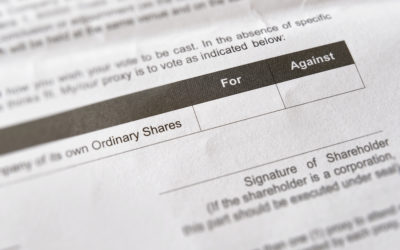A corporation’s day-to-day operations are managed by the board of directors through their designees, the officers of the company. While the officers perform a significant amount of the day-to-day work, the directors provide advice concerning big-picture decisions....
Securities
What is a 10-Q?
A 10-Q is a report that publicly traded companies are required to file with the Securities and Exchange Commission on a quarterly basis. Similar to a 10-K but based on reviewed, not audited numbers and financials, this report provides insight to investors and...
Do I Need to File an 8-K?
If you are wondering, “do I need to file an 8-K?” the answer is most likely “yes.” When in doubt, file an 8-K. An 8-K is used for current reports under Section 13 or 15(d) of the Securities Exchange Act of 1934, and is filed in accordance with 17 CFR § 240.13a-11 or...
What are SEC Filings?
The Securities and Exchange Commission (SEC) requires public companies and broker-dealers to periodically file financial statements and various other disclosures. These regulatory documents are meant to provide information to investors, analysts, and regulators. These...
How to Transfer Shares of a Public Company
After you purchase shares of a public company, you might sell or transfer them at some point. Transferring shares is covered by Section 4 of the Securities Act of 1933. This statute provides two exemptions from registering with the Securities and Exchange Commission...
Fœneratoris Emptor – Lender Be Wary – what the Adar decision means for toxic lenders in New York
Predatory lending in all of its myriad of forms has been around since the concept of lending first arose. Call it payday loans. Call it “going to the corner” to borrow from a person with the middle name “the” in the securities world, that toxic lenders...





